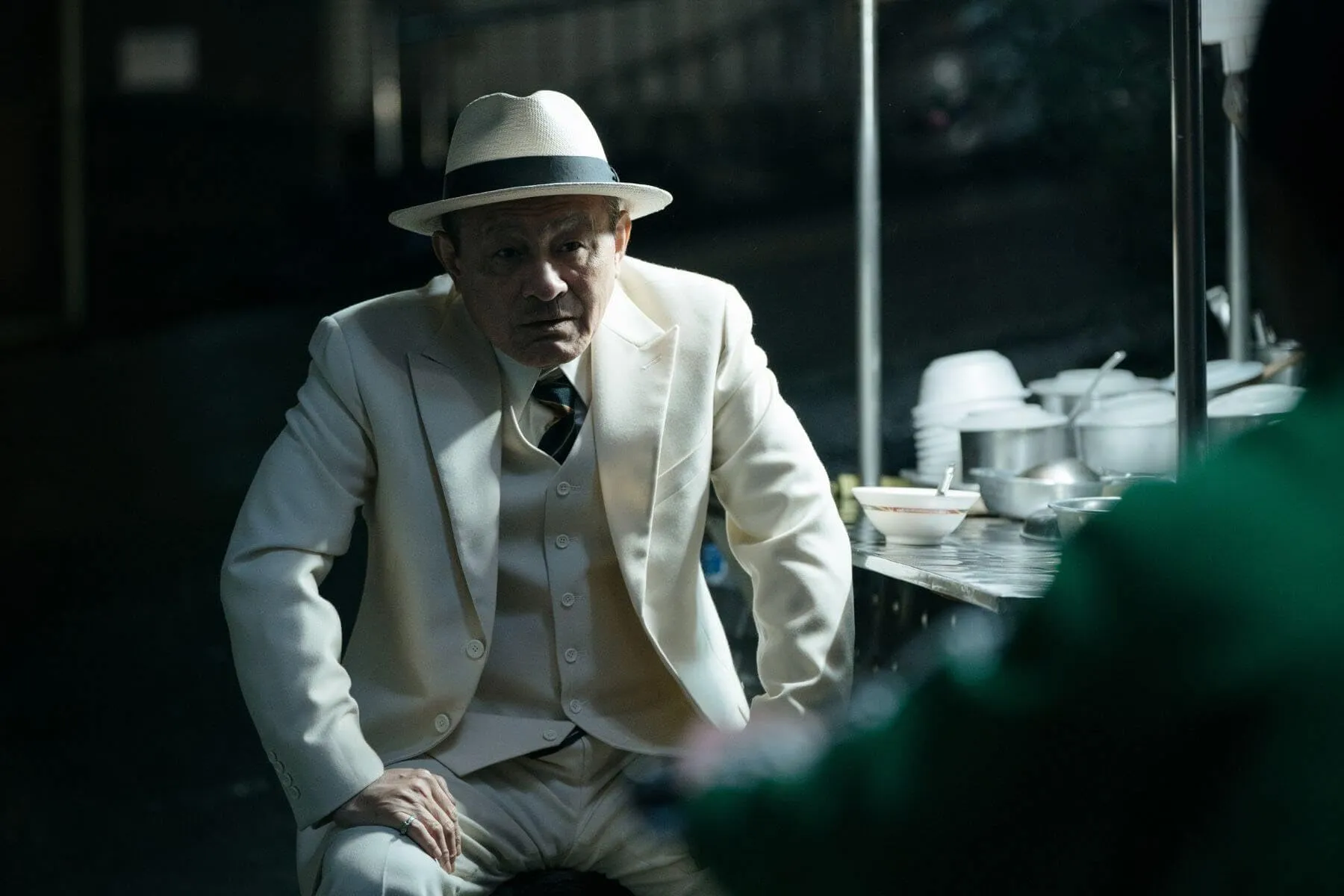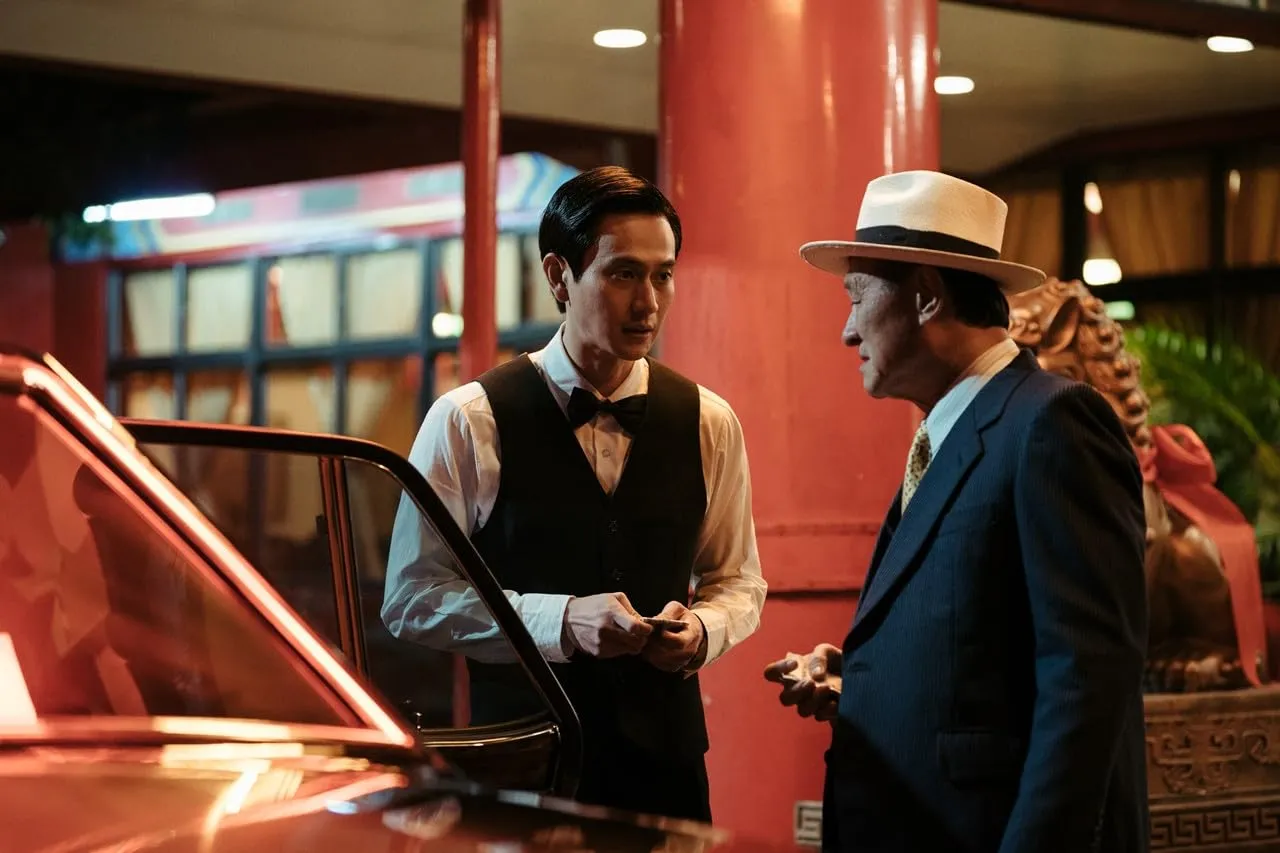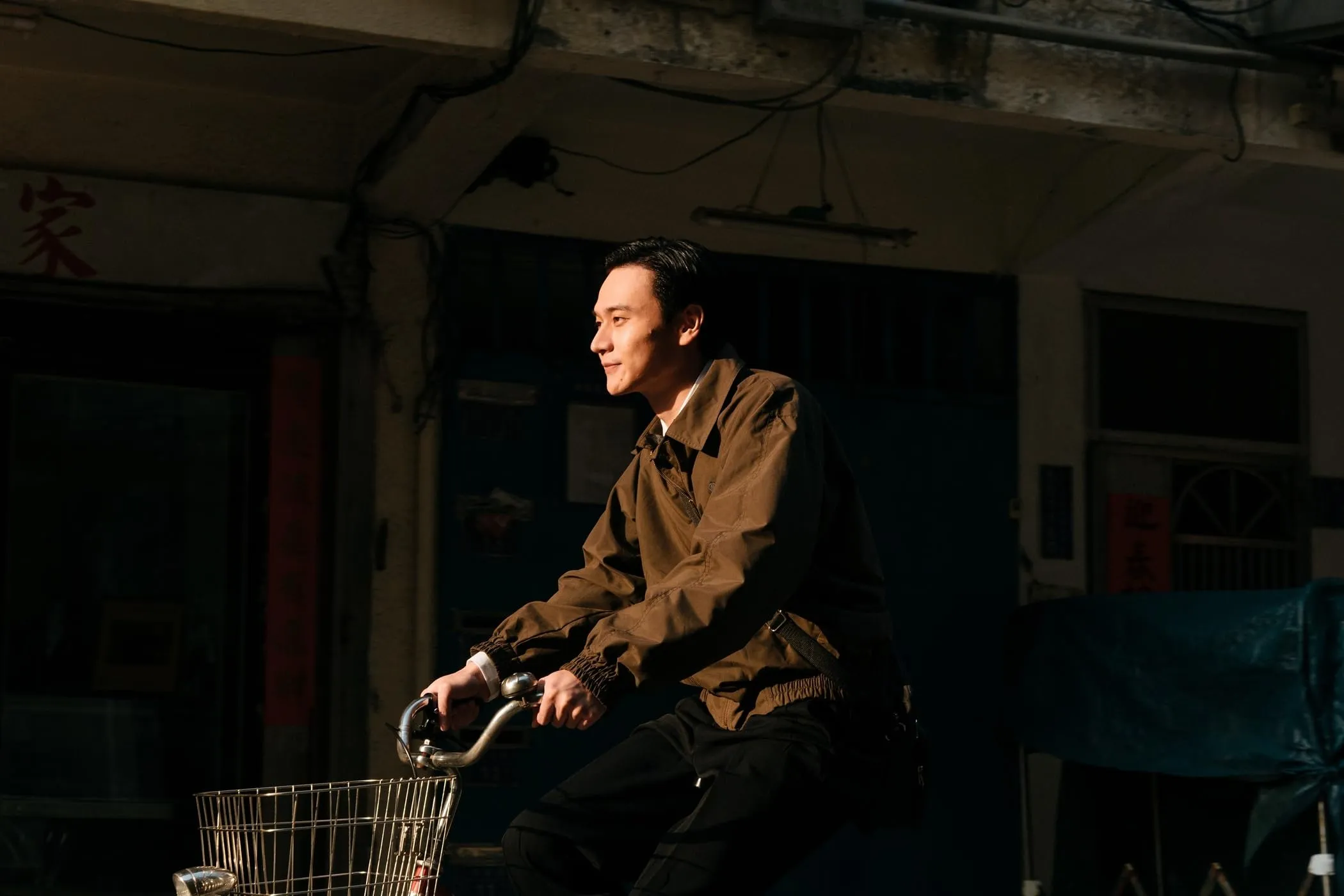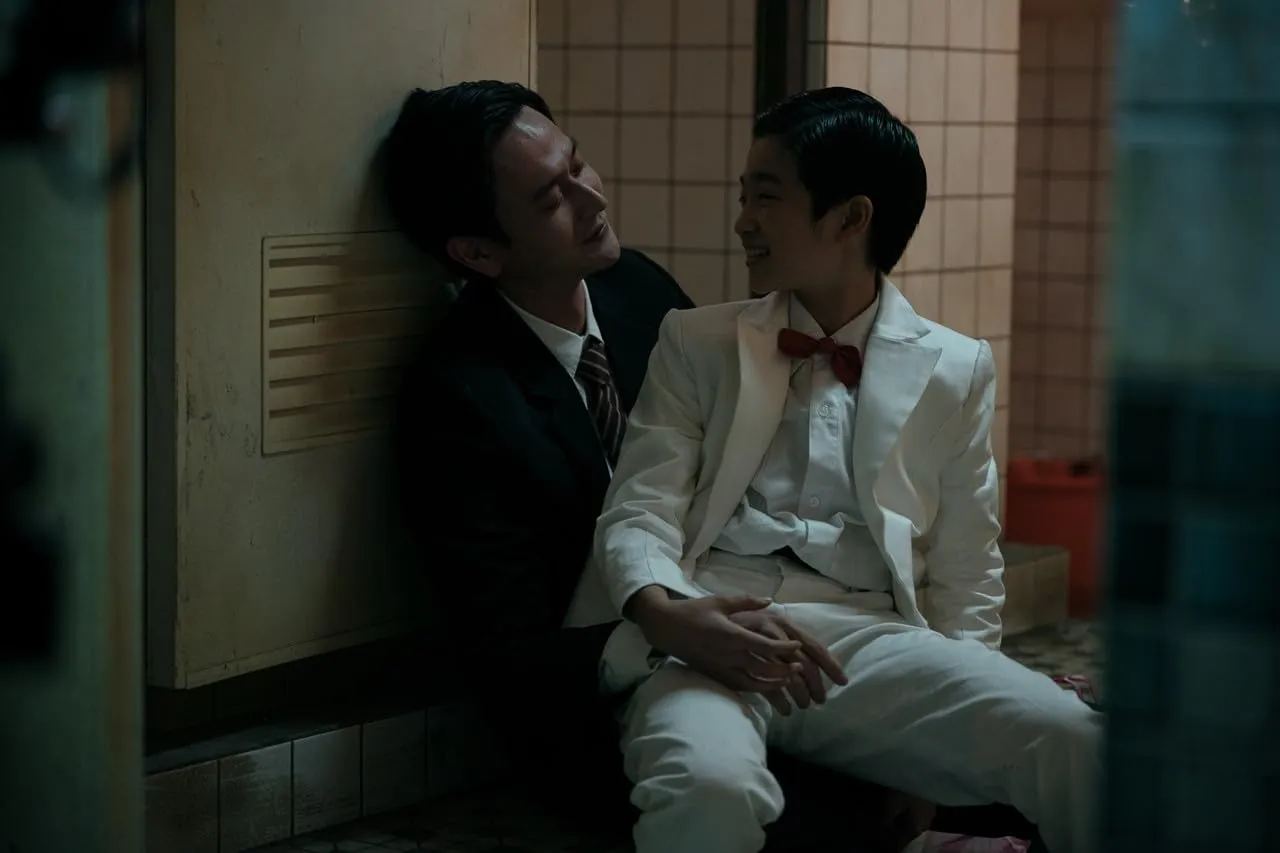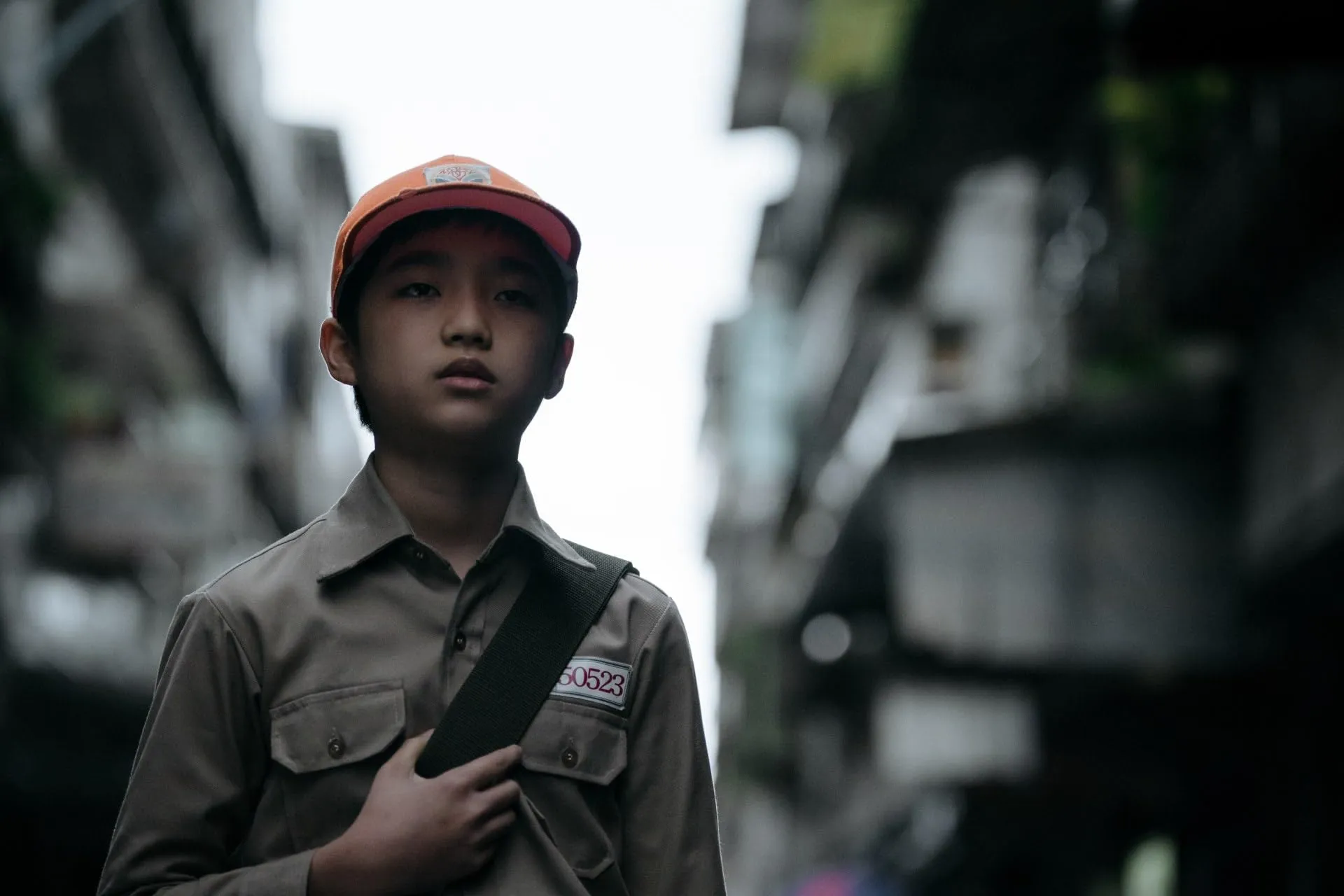In 1989, Taipei was a city caught between two realities. The streets were alive with modernizing spirit, a city ready to embrace the future while remaining true to its traditional values. The skyline was taking shape, with tall buildings rising above the marketplaces and narrow streets below, which retained their old-world beauty.
Taiwan’s rapid economic expansion had altered the island, but the disparities between rich and poor were apparent. Glittering malls lay opposite deteriorating communities, and the promise of wealth appeared to benefit just a select few. As the economy expanded, inequality increased, leaving many on the margins, watching as their ambitions seemed out of reach.
Against this backdrop, stories of ambition, class conflict, and personal sacrifice unfold, exposing society’s sharp divisions and exploring how far people will go to get a piece of the pie, even when the odds are stacked against them.
In a society torn between old traditions and new chances, the characters in this story make difficult decisions that represent the moral quandaries of the day. As the economy grows, so does the pressure to succeed. People struggle with the tension between ambition and ethics, weighing personal gain against the cost to their integrity.
For many, success equates with material prosperity, but at what cost? Taipei’s growing income imbalance creates a fertile ground for moral conflict—do you follow the rules and risk falling behind, or do you bend them to guarantee your place in the world?
As the story progresses, characters are forced to confront their values while navigating a terrain in which decisions frequently have no obvious right or wrong. In a rapidly changing city, not only the skyline is being transformed; people’s souls are at stake.
Moral Dilemmas: Altruism vs. Self-Interest
The story revolves around a timeless moral conflict: altruism and self-interest. The characters are continuously forced to choose between doing what is right and what will benefit them the most. These decisions have genuine, long-term implications in a city like 1989 Taipei, where the distinction between success and failure is razor-thin.
The film investigates how this dualism influences both individuals’ lives and society. On the one hand, there’s the appeal of self-preservation: the desire to advance up the social ladder, accumulate fortune, and protect one’s family. Conversely, there is a moral duty to aid others, to do the right thing even if it does not result in material benefits.
The story does not provide easy answers. Instead, it delves deeply into the complexity of human nature, examining how we justify our judgments, rationalize behaviors that may harm others, and reconcile those decisions with our sense of identity.
This subject is not limited to major decisions; it is embedded in the little, everyday behaviors that add up to establish a character’s morality. As the characters grapple with this duality, they are forced to confront their values and debate whether true achievement may be at the price of others.
The protagonist, Liao Jie, is caught firmly in the moral crossfire. On the surface, he appears to be just another ambitious man seeking success in a city that values ruthlessness over ethics. However, his internal conflict between doing what is best for himself and what is best for others suggests a much deeper issue.
At first, Liao Jie appears motivated by personal gain, seeking opportunities to secure his position in an increasingly competitive society. However, as the story progresses, it becomes clear that his journey is one of self-discovery, with the consequences of his decisions becoming more apparent with each step.
What makes Liao Jie so interesting is that his predicament is about more than simply right and wrong; it’s about personal sacrifice and the emotional toll it takes. He deals with the consequences of his mistakes, and the growth he experiences is messy, human, and sympathetic.
This is not a figure who is easily redeemed. Instead, his development is incremental, punctuated by setbacks and moments of uncertainty. The more Liao Jie is forced to confront the consequences of his decisions, the more he wonders if self-interest would ever truly offer him fulfillment.
His journey reflects a greater truth: achievement in an unequal world comes at a steep cost, but taking the moral high ground may be just as painful. As Liao Jie attempts to strike a balance between selfish ambition and benevolence, his character growth provides the emotional foundation of the story. His storyline emphasizes the universal conflict between pursuing one’s aspirations and upholding one’s integrity—a dilemma that exists in any era or society.
Complex Characters and the Power of Choice
The film’s characters are as diverse as the city they live, each negotiating the moral labyrinth of 1989 Taipei in their unique way. The protagonist, Liao Jie, is driven by ambition but eventually realizes that success comes at a cost. His objectives aren’t solely about wealth or status; he’s torn between a desire for a better life and an awareness of his actions’ impact on others.
Liao’s flaws stem from his tenacity and tendency to rationalize his decisions. At times, his internal struggle to balance selfish gain and moral obligation makes him appear to be on the edge of a breakdown, striving to identify himself in a world that values power over compassion.
Old Fox, on the other hand, is a tougher character. He is a game master, pragmatic and strategic, yet his sharp mind is frequently confused by his selfish character. He manipulates the world around him, but behind the surface, there is an evident sense of exhaustion—he’s been around long enough to understand the hollowness of everything. He represents the cynical side of the world that Liao Jie is attempting to traverse.
Liao Tai-lai, Liao Jie’s counterpart, contrasts sharply with the others, although his motivations are equally complex. He is a more thoughtful, grounded character; his strengths are his resilience and loyalty, but his faults are frequently revealed in moments of self-doubt. These three men propel the film’s investigation of moral struggle, with each character’s path adding to the wider narrative about the cost of achievement.
While the male characters dominate the film, the female roles—such as Lin Chen-Chen and Yang Jun-Mei—have a modest but tremendous potential that the narrative does not fully explore. Both women are essential in their own right. Still, their development feels understated, as if the story prioritizes the male-driven scenario.
Lin Chen-Chen, for example, is shown as a helpful figure, although her challenges and goals are mostly unaddressed. She could have been more than just a supporting character, adding a stronger emotional counterpoint to the uproar surrounding Liao Jie. Yang Jun-Mei, who appears to have a wealth of untapped emotional depth, could have added layers to the narrative with her self-discovery or moral dilemma arc.
These women play important parts in the story. Still, their full potential is underutilized, leaving viewers wondering how their viewpoints may have enhanced the core themes. In a story so concerned with moral choices, it would have been fascinating to witness how these female characters deal with the same difficulties as their male counterparts, especially in a city like Taipei, where gender and class relations play a significant role.
Crafting Atmosphere: Cinematic Mastery in Every Frame
The film’s cinematography plays an important role in bringing us to 1989 Taipei, portraying its vivid energy and underlying sense of fear. The graphics, which range from neon-lit streets to cozy, crowded dwellings, brilliantly reflect the city’s struggle between modernity and tradition. One notable example is the use of tight, almost claustrophobic shots in sequences of moral decision-making, in which characters are confined by their circumstances and choices.
In contrast, wide-angle views of bustling city streets emphasize the film’s sensation of solitude. It’s as if the characters are stranded in a city that is simultaneously vibrant and insensitive to their plight. This nuanced visual narrative immerses the viewer not only in the surroundings, but also in the characters’ inner agony.
The film’s score plays an important role in creating its emotional atmosphere. The music is more than simply a backdrop; it is a powerful weapon that highlights the characters’ internal issues and the story’s shifting tone. The score, which combines traditional Taiwanese instruments with more modern arrangements, gives a sense of nostalgia while simultaneously expressing the discord of a transitioning city.
Sometimes, the music swells to heighten the tension of a moral decision or a key moment. Other times, it’s more restrained, allowing the suspense to grow in silence and making the audience feel the weight of a character’s decision without using words. Whether it’s the gentle plucking of a string instrument or the rhythmic pulse that foreshadows impending conflict, the score heightens the mood, making every emotional beat reverberate more deeply.
Director Hsiao Ya-chuan creates a crisp, nuanced vision for the film, mixing personal individual interactions with big themes of society change. His directing is intelligent, never hurrying the viewer to conclusions and allowing for a natural progression of moral difficulties. He takes the time to convey his characters’ intricacies through language and gestures, expressions, and settings.
One of his most notable accomplishments is his ability to make the city of Taipei feel like a character—its streets, skyline, and inconsistencies all reflect the personal fights on screen. Hsiao’s ability to create such a vivid, evocative setting while remaining focused on the story’s emotional heart demonstrates his abilities as a director. He allows the moments to breathe, knowing that the viewer will notice the subtle swings in character development, making each turn in the story feel earned and meaningful.
At its core, the film mediates our choices and the consequences of our decisions—whether personal, moral, or societal. The themes of self-interest vs compassion, ambition versus integrity, are smoothly integrated into the narrative and reverberate deeply inside the fabric of 1989 Taipei. The characters are influenced by the city’s rapid economic boom and its underlying inequalities, making their moral problems feel personal and universal.
As Taipei teeters between ancient values and new possibilities, the characters struggle with changing identities. Their decisions—whether in pursuit of wealth, power, or personal redemption—are frequently laced with conflict, highlighting the challenges of living in a society that prioritizes ambition over all else.
Interestingly, these topics are examined not only on an individual level, but also about the larger social changes taking place in the city. The film challenges not only what it means to achieve, but also if success can ever be truly fulfilling if it comes at the expense of one’s integrity. Ultimately, the characters’ adventures leave us thinking about the cost of ambition, the repercussions of self-interest, and how a quickly changing world challenges us to redefine who we are. It’s a fascinating, thought-provoking journey that will be with you long after the credits roll.
Themes of Power, Morality, and Empathy: A Timeless Exploration
The film dives deeply into the issues of injustice, morality, power, and empathy, providing a comprehensive examination of how these forces impact individuals’ lives and society. Inequality is more than a backdrop; it is a constant force driving characters to make tough, often ethically ambiguous decisions. The characters’ conflict between self-interest and benevolence reflects the harsh reality of a world in which prosperity is frequently linked to the exploitation of others.
Personal and societal power is presented as something that can corrupt while also being something that people urgently crave toto transcend the weight of poverty and social constraints. However, empathy remains an uncommon commodity. The film questions the notion that empathy is a luxury only the wealthy can afford, emphasizing how difficult it is to sustain compassion when survival is at stake.
The lack of clear-cut answers keeps this moral exploration interesting. Characters are not just “good” or “bad”; they are shaped by their circumstances, decisions, and internal struggles. The film compels us to confront the consequences of chasing power at the expense of others and asks whether true empathy is conceivable in such a harsh atmosphere.
Despite being set in 1989 Taipei, the film’s discussion of injustice and moral dilemmas feels particularly timely today. As the gap between the wealthy and the dispossessed widens, the characters’ battles with ambition, corruption, and human connection resonate globally.
The film explores the age-old conflict between self-preservation and altruism, making it more than just a product of its period, but a timeless commentary on the human condition. The characters’ ethical quandaries mirror those many face today, personally and in society. In a world where power frequently defines success and empathy can be hard to come by, the film’s themes transcend time, providing devastating insights into modern life. Its appeal is eternal, encouraging viewers to consider how they navigate their moral landscapes in a constantly changing world.
Screenplay and Pacing: Crafting a Compelling Story
The film’s screenplay strikes a perfect mix of tension and relief, seamlessly weaving nuanced character arcs with bigger social concerns. One of its most notable strengths is how it develops character complexity without overwhelming the spectator. The narrative develops gradually, enabling the characters’ moral quandaries to grow naturally.
This slow pace lets viewers grasp their reasons and the risks underlying their decisions, making the emotional payoff even more powerful. However, there are times when the screenplay could have dug deeper into certain secondary characters, particularly the women, whose promise remains largely unfulfilled. These periods of underdevelopment reduce the narrative’s generally tremendous emotional pull.
In terms of tempo, the film maintains a good balance between calmer, reflective passages and more aggressive, confrontational ones. This ebb and flow heightens the story’s intensity, although at times, the calmer sequences could have been cut to keep the narrative from dragging. The pacing supports the story’s thematic weight; however, reducing a few portions could have helped keep the flow consistent.
Finally, this film has a long-term influence because it encourages deeper contemplation on moral choices, power relations, and the human condition. Its examination of inequity and personal suffering is as relevant today as ever, teaching timeless lessons about ambition, empathy, and sacrifice. While some sections of the narrative may have been more honed, the film’s emotional depth and thematic richness are difficult to overlook. It’s a movie that stays with you long after the credits have rolled, challenging you to consider how we negotiate our difficult moral landscapes.
Final Thoughts: A Film of Depth and Complexity
This film succeeds in providing a fascinating look at ambition, morality, and the human cost of achievement. It explores universal themes—power struggles, self-interest, and empathy—while contextualizing them in 1989 Taipei.
The characters are full of inconsistencies, and their difficulties feel achingly real. The screenplay’s slow, deliberate pace allows for the deep emotional impact long after the credits roll, indicating that the film is more than just a snapshot of a time and place.
The photography and score elevate the tale, putting the audience in a simultaneously vivid and claustrophobic universe. While several supporting characters, particularly the female parts, might have been developed further, the basic narrative is intriguing enough to keep you interested in the characters’ adventures.
What distinguishes this film is its capacity to stick with you. Even when the final scene fades to dark, the ethical concerns it presents reverberate. The characters’ decisions, particularly those without clear answers, provide fertile fuel for post-viewing conversation. What does it truly mean to succeed? Can you accomplish anything without surrendering your integrity?
These types of questions stay with you, making the film an excellent conversation starter. The complexity of the movie is exactly what makes it memorable. Its themes transcend time and location, encouraging audiences to consider their moral landscapes long after they leave the theater.
The Review
Old Fox
This film is a stunning investigation of moral complexity, navigating the tensions between ambition, power, and empathy in an ever-changing society. While it succeeds in character development and philosophical depth, notably in its depiction of inequity and personal sacrifice, the underdeveloped secondary characters prevent it from being genuinely great. Nonetheless, its emotional weight and relevance to current events make it a riveting film that lasts long after the credits roll.
PROS
- Deep exploration of moral dilemmas and human complexity.
- Strong character development, particularly the protagonist’s internal conflict.
- Effective use of cinematography and music to enhance atmosphere.
- Timeless themes that resonate beyond the film’s 1989 setting.
- Thoughtful, nuanced direction that allows the story to breathe.
CONS
- Some secondary characters, particularly the female roles, feel underdeveloped.
- Slow pacing in certain parts, which may feel dragging at times.
- A lack of clearer resolution for some moral conflicts, leaving certain plot threads unresolved.









































